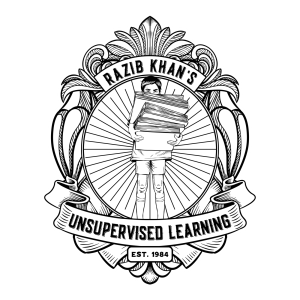
Razib Khan's Unsupervised Learning
Science:Life Sciences

Timothy B. Lee: don't rage against the machine
 2023-05-29
2023-05-29
A few years ago now, Razib talked to Tim Lee about his new Substack Full Stack Economics, which featured deep dives into economic issues (as well as some on-the-ground-reporting, like when he drove Lyft to get a feel for its economics). But recently, Lee decided to put Full Stack Economics on pause to focus on a new Substack: Understanding AI. Artificial intelligence is hot right now, but Lee covered tech for a decade for Washington Post, Ars Technica, and Vox.com, and has a master’s degree in computer science from Princeton, so Razib was curious about what he’s learned. Recently two pieces seem to illustrate the alternative faces of generative AI and LLMs, I cloned my voice with AI and my mother couldn’t tell the difference and Why I'm not worried about AI causing mass unemployment.
On this episode of Unsupervised Learning, Razib and Lee discuss the impact of artificial intelligence, the good, bad and trivial. Lee makes the case that AI might be like the internet, transforming narrow aspects of knowledge-work and enabling a richer culture, but without clear revolutionary implications for the economy. His thesis hinges on the fact that AI cannot operate in the material world due to the primitive state of robotics, though Razib wonders if this barrier too might fall in the near future. Overall, Lee suggests that the AI “hype machine” is being driven by the fact that information workers who set the terms of public discussion are the ones likely to be most impacted; waiters, plumbers and nurses, in contrast, will be just fine.
Razib and Lee also discuss the field of existential risk analysis. Lee found Nick Bostrom’s Superintelligence: Paths, Dangers, Strategies unimpressive due to the fiat assumption that fields like nanotechnology could be manipulated by AI when nanotechnology itself is in quite a primitive state. Overall, Lee’s perception is that the “doomers” in the AI punditry field tend to be science fiction writers who are better at spinning narratives than doing analysis.
More Episodes
 2023-12-05
2023-12-05
 2023-11-29
2023-11-29
 2023-09-24
2023-09-24
 2023-09-15
2023-09-15
 2023-09-13
2023-09-13
 2023-09-12
2023-09-12
Create your
podcast in
minutes
- Full-featured podcast site
- Unlimited storage and bandwidth
- Comprehensive podcast stats
- Distribute to Apple Podcasts, Spotify, and more
- Make money with your podcast
It is Free
- Privacy Policy
- Cookie Policy
- Terms of Use
- Consent Preferences
- Copyright © 2015-2024 Podbean.com




